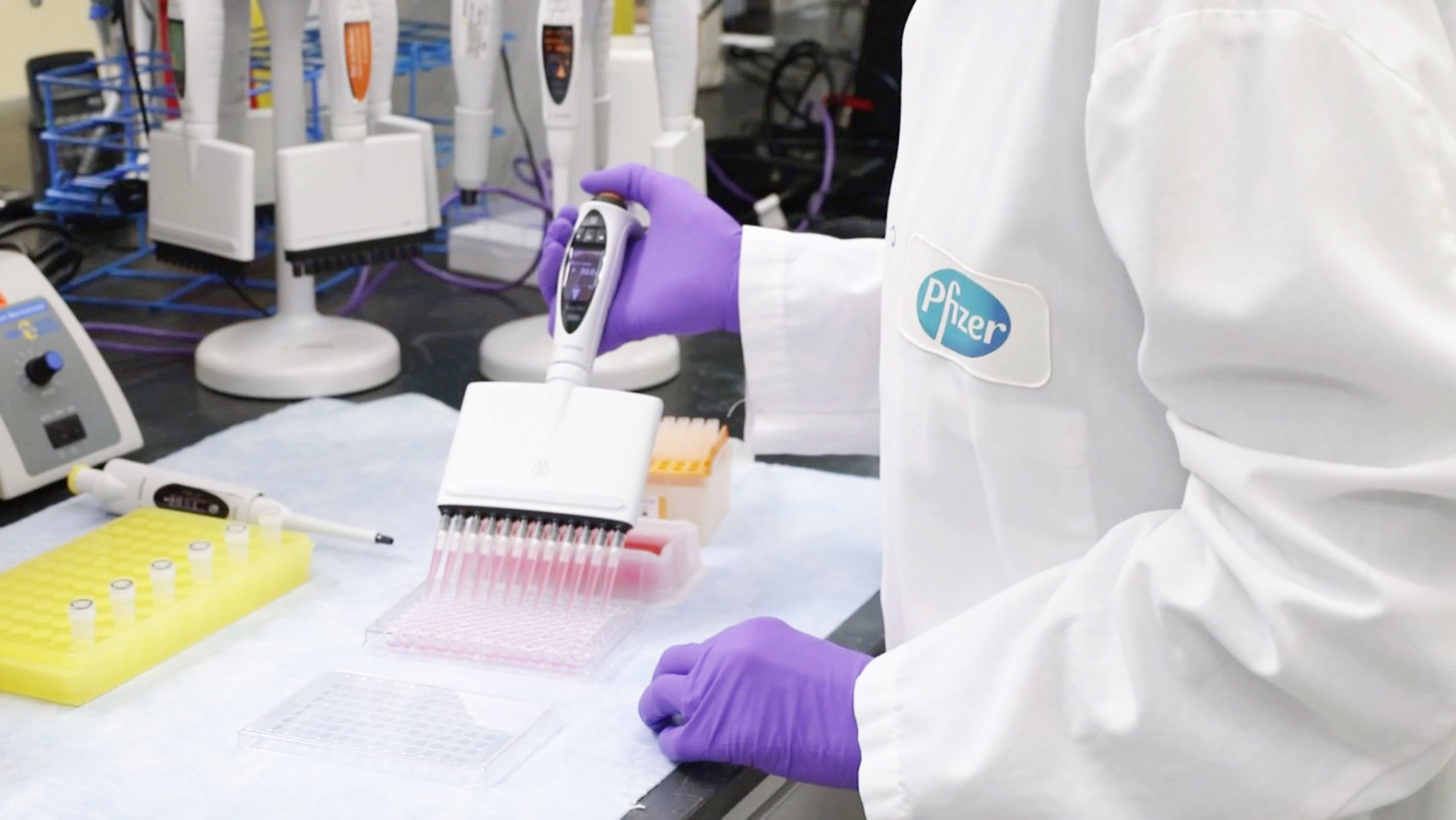The breakthrough success of two highly effective SARS-CoV-2 vaccines is the game changer we have been waiting for in the world’s battle against a brutal pandemic. Vaccines developed by both Pfizer/BioNTech and Moderna have now been proven to be 95% effective in human trials. Both vaccines depend on technology that hasn’t been used before in commercial vaccines, called messenger RNA technology. While progress is encouraging, scientists still don’t know how long the vaccines will offer protection or what long-term side effects may occur in users. The biggest obstacle facing vaccine distribution is the need for cold-chain transportation, as Pfizer/BioNTech’s vaccine must be kept at -70° Celsius constantly to remain effective.
Pfizer’s Success
Pfizer has received emergency use authorization in the UK for its mRNA COVID vaccine, ahead of the U.S. While Russia and China have raised controversy by greenlighting vaccines without final trial results, Pfizer’s vaccine earned approval with completed trials of more than 44,000 people, protecting a staggering 95% of volunteers who were vaccinated. Messenger RNA vaccines contain only a minuscule fraction of the virus, so they don’t infect people with the disease they’re trying to prevent.

Specialized ultra-cold freezers are necessary to store the vaccines, and while most hospitals will have access to these uniquely colder freezers, each may sell for upwards of $10,000. The vaccines must be transported in the same -70° Celsius environment, making refrigerated transportation a major hurdle to overcome for widespread accessibility.
Moderna’s Vaccine
Moderna is hot on Pfizer’s heels, with trials of 30,000 plus people finding their vaccine to be at least 95% effective in preventing COVID. Researchers say its two-dose vaccine (also given weeks apart) may cause the immune system to respond optimally to the second vaccine, in effect, priming the immune response. Moderna has a logistical advantage over Pfizer and AstraZeneca in that they can maintain the vaccine’s effectiveness for a longer duration and at normal freezing temperatures.
The “Oxford” Vaccine
Pharmaceutical giant AstraZeneca, along with Oxford University, just announced that its COVID-19 vaccine trial was shown to be up to 90% effective. The UK government has pre-ordered 100 million doses of the Oxford vaccine, and AstraZeneca says it will make three billion doses in 2021. Their vaccine may cost about $4 per dose, while Moderna’s price point is $25 per vaccine, and Pfizer’s is still not definitively set.
Who Will Be Vaccinated?
After an almost unanimous vote, the CDC advisory panel recommended vaccinating healthcare workers and long-term care facility residents with the first round of available vaccines. The administration must make the final call on who will get first dibs on the vaccine before the end of the year when states are expected to start receiving doses of the Pfizer and Moderna vaccines. Britain is already distributing Pfizer’s vaccine to high-risk groups and nursing home residents, having already ordered enough doses for 20 million people.








